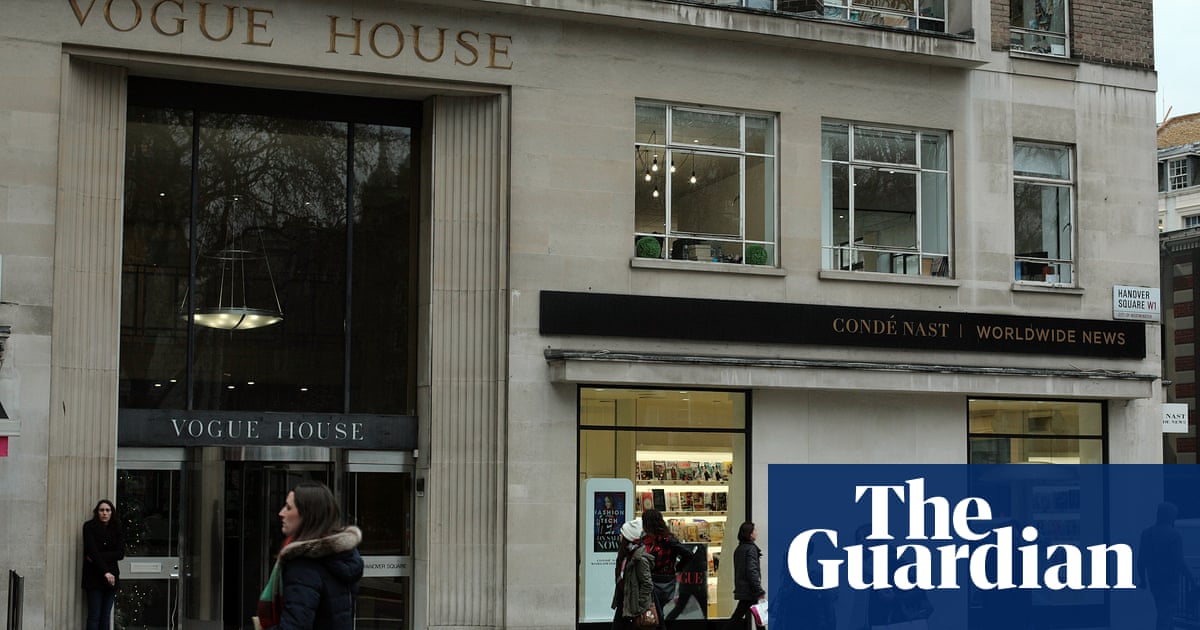
A Teen Vogue photographer has said the hiring and swift axing of editor-in-chief Alexi McCammond over anti-Asian tweets shows Condé Nast does not “value” its Asian staff members.
McCammond apologised for comments she tweeted in 2011 and which had been reported before. Condé Nast announced last week that she would no longer start in the job on Wednesday as planned.
“Condé Nast knew about these tweets but they still offered the job to McCammond,” said Yu Tsai, a photographer who has worked for the magazine. “This tells me that [they] didn’t value their Asian community.
“I think Condé Nast must have thought the Asian community would remain silent about this matter. [But] our community will not take social injustice and racism silently.”
In 2019, McCammond was named emerging journalist of the year by the National Association of Black Journalists. When her appointment at Teen Vogue was announced earlier this month, Anna Wintour, Vogue’s global editorial director, said: “Alexi has the powerful curiosity and confidence that embodies the best of our generation of leaders.”
It seemed a step forward for a publisher which had endured a difficult year since the killing of George Floyd in Minneapolis last May touched off global protests for racial equality.
In June, a Wintour apology to black creatives for not giving them enough space in Vogue met with widespread derision. Beverly Johnson, the first black model to appear on the magazine’s cover, in 1974, commented: “Wow – after three decades, fashion’s leading arbiter has finally acknowledged that there may be a problem!”
Magazine covers featuring women of colour – Viola Davis for Vanity Fair and Simone Biles and Kamala Harris for Vogue – were criticised for alleged colourism and bad lighting of dark skin. Wintour apologised for the Harris cover, saying: “It was not our intention to … diminish the importance of [her] victory.”
Elsewhere, Bon Appetite’s editor-in-chief, Adam Rapoport, stepped down in June after a “brownface” photo resurfaced. The magazine apologised for the “horrific” photo and promised: “Things are going to change.”
Some observers suggested structural racism at Condé Nast meant people of colour were not in positions of power to prevent such repeated embarrassments. Johnson suggested the imposition of a “Beverly Johnson rule”, making it mandatory that black people be interviewed for significant positions. McCammond, from the politics website Axios, seemed to offer a highly visible step towards such change.
But her tweets from 2011 resurfaced in response to news of her appointment. In an open letter, 20 Teen Vogue staffers said: “In a moment of historically high anti-Asian violence … we as the staff of Teen Vogue fully reject [McCammond]’s sentiments.”
Advertisers including Ulta Beauty and Burt’s Bees halted campaigns as a result of the tweets. After the Atlanta spa shootings, in which six Asian women were among eight people killed, McCammond handed in her notice.
“McCammond’s actions contributed to the hate that we are facing today with the Asian community,” Tsai said.
Randi Bryant, a diversity and inclusivity consultant, said McCammond’s multiple apologies did not absolve her.
“There are some things people find difficult to forgive,” she said. “Forgiveness is about trust: do you trust this person is sincere in their apology and will not hurt you in the same way again?”
Bryant also said McCammond’s own ethnicity may have affected the reaction to her tweets.
“Racism is about power,” she said, “since minorities do not make policies or possess most of the power in the country, people may not react as strongly when a minority expresses prejudice.”
Bryant said McCammond’s appointment and resignation should not be treated as an isolated incident.
“As a country we are reactive to racism instead of proactively addressing it,” she said. “We become outraged after high-profile killing, demand change, then revert back to acting as though racism isn’t a problem.”
Condé Nast did not immediately respond to a request for comment.











